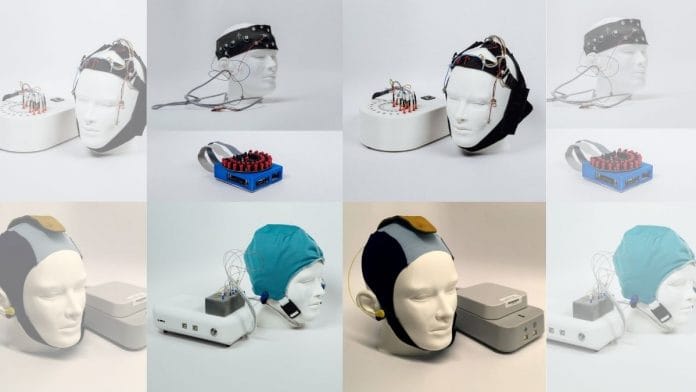Google parent company Alphabet has unveiled details of a mental health experiment and prototype device designed to monitor symptoms of depression more accurately over time.
Called Project Amber, the experiment combined machine learning with a 96-year-old technology to measure electrical activity in the brain: electroencephalography (EEG).
“We were inspired by neuroscience studies showing that certain patterns of electrical activity in the brain correspond with depression symptoms,” explains Obi Felton, from the Moonshots team at X, Alphabet’s innovation lab.
“For example, many depressed people find that things that once brought them pleasure no longer do so; they don’t experience the reward that follows a positive experience.”
A different approach
Traditional mental health assessments involve clinicians asking a series of questions or providing a survey that patients complete themselves.
As these surveys are subjective, Project Amber focused on electrical activity in the brain as an objective measure for mental health – similar to the role blood glucose levels play as a biomarker for people with diabetes.
The team developed a prototype headset described as an easy-to-use, low-cost, research-grade EEG system.
“In our final prototype, the headset slips on like a swim cap and can be put on by anyone with minimal training, taking around three minutes to set up,” Felton says.
Collaborative research
The researchers – who included neuroscientists, hardware and software engineers, machine learning specialists and medical technology product experts – also developed machine learning software to process the data collected by the headset.
“There was a notably strong interest in using technology as a tool for ongoing monitoring – capturing changes in mental health state over time – to learn what happens between visits [to clinicians],” Felton says.
More research is needed, according to Felton, who says it’s “unlikely” a biomarker for depression and anxiety exists, “given the complexity of mental health”.
But, she added, “there’s no question that there is a huge opportunity for technology to enable better measurement”.
In the meantime, Project Amber is making its technology and research findings freely available on GitHub, the open source code hosting platform, in the hope that the mental health community can build on its work.
Global challenge
Poor mental health is a huge and growing problem.
The World Health Organization estimates that globally, more than 264 million people of all ages suffer from depression. It is a leading cause of disability worldwide and is a major contributor to the overall global burden of disease.
More women are affected by depression than men. At its most severe, depression can lead to suicide. Close to 800,000 people die due to suicide every year. It is the second leading cause of death in 15-29-year-olds.
The COVID-19 pandemic is causing widespread psychological distress, and will likely lead to a long-term upsurge in the number and severity of mental health problems, according to a United Nations report, COVID-19 and the Need for Action on Mental Health.
Pioneers of Change
The World Economic Forum’s inaugural Pioneers of Change Summit on 16 – 20 November 2020 brings together innovative leaders and entrepreneurs from around the world to examine how technology can help to build resilience and drive sustainable change.
The digital event will explore innovative solutions to the challenges faced by businesses during a global pandemic and includes sessions on Keeping Populations Healthy and Frontier Technologies.
“The pandemic has revealed the need to strengthen health systems and ensure that populations have better information and control over their health,” the Forum says. “How can technologies help to improve and maintain healthier lives?”
Topics include combating antibiotic resistance, reinventing hygiene with sustainable technologies and using artificial intelligence to transform health outcomes for the better.
This article was originally published in the World Economic Forum.
Also read: A huge mental health crisis awaits India post-Covid, but only the power of community will help






